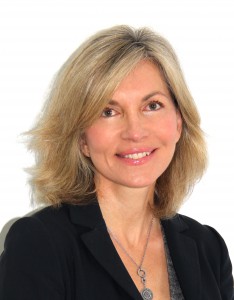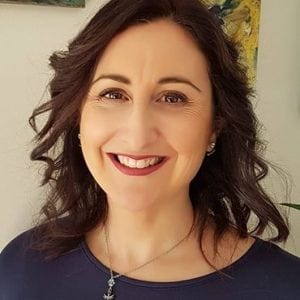
- What has made you interested in helping couples with their relationships?
I started my career working as a school counsellor, seeing children and adolescents, but also working with their families. I realised here how important the foundation of the parent relationship is in a family. It doesn’t really matter how many activities your kids are involved in, how many holidays you take them on, what laptop you buy them, couples who nurture their own relationship are stronger to ‘run’ the family, set a good example for their children and give their children a sense of stability and security. So after working in schools for a little while I wanted to impact families from another angle by working directly with couples. The experience of working with couples was more satisfying than I could have imagined. To learn and see that people can develop themselves and heal from past emotional wounds through the context of a supportive relationship made the work even more meaningful. - What do you find are the most common relationships problems that you see in couples coming in to see you?
Since I have specialised in sex therapy (I still work with couples for other problems too), I am getting an increased number of clients who are coming in for these issues. Quite often they are issues of mismatched libidos, or a change in the sexual dynamic or relationship that is difficult to understand. Sometimes it surprises me how long couples wait to get help when it is about sex but it is also understandable because it can be challenging to talk about your sex life with a complete stranger. My advice is to come in early because preventative work is a lot easier and more successful than dealing with something that has been there for many years. Issues in the sexual side of the relationship can be a reflection of issues in other parts of the relationship but sometimes it is purely about the physiology and biology of sex and this needs to be addressed directly and so it isn’t necessarily a reflection of the relationship generally.
- What are the most common problems for women and for men in relationships?
To answer this question, I have to make some generalisations because gender roles and gender issues in relationships are really shifting. One thing in relation to this issue both men and women must deal with is that we can’t rely on societal ideas of what women or men are supposed to do or be like in a relationship. This means that all aspects of a relationship need to be discussed and negotiated eg who does the what domestic jobs, how do you parent together, who is the organiser and who is the doer etc. This means that couples need good communication skills to be able to do this and can’t make assumptions. If one assumes that their partner will be responsible for a particular task and then they don’t do it this can lead to all sorts of problems. For women, they can feel like they are being unfairly burdened with the domestic jobs or have unrealistic expectations of what their partner should do and men can feel like things are being expected of them outside of the ‘contract’ of their relationship or alternatively that their partner is not competent in doing the things that are their responsibility. We are living in exciting times as we are moving closer to gender equality which means that each couple can decide how to structure their relationship- this can be based on traditional gender roles or completely different and unique to the couple- but it all has to be negotiated explicitly.
- What are the most common problems for men in relationships?
See about to answer both questions- I’ve edited the question to include both men and women. Relationship counselling Sydney.
- What would you like couple clients to know about the couple counselling process before they come in?
Before couples come in to counselling I would like them to know that part of the process taking the counselling home. It is just as important what they do in between sessions to create change as it is what happens in session, if not more. So, at the beginning all the challenging or important things might happen in session but unless this is transferred to day to day life at home then there can’t be any sustainable change.
- What has been the couple you remember who has made the biggest turnaround, from being in severe trouble to transforming their relationship into a happy loving one?
One couple who really stands out for me is a couple who were in the early years of their marriage and had just had their first child. In their first few sessions their resentment and hurt toward one another created a heavy feeling in the room as they sat as far away from one another on the couch in my office. They blamed each other for every unhappiness in their lives even though they told me the beautiful story of love at first sight when they met. Slowly as we worked through things they began to hear what the other was hurt about, they stopped personalising it and hearing it as a criticism and each of them began to see the things that they could change to make the relationship better. They were sitting closer to each other on the couch and reaching out to comfort one another if they became emotional in session. It was so beautiful to watch this change and shift. They now have 3 beautiful children and I occasionally have some of their friends coming in for counselling on their recommendation and comment of how much it changed their lives. As therapists, we don’t often hear about what happens to our couples after they finish counselling but it has been nice in this instance to hear that this couple is going strong.
- What, for you, are the most important things that couples need to remember if they want their relationship to thrive, instead of just survive?
The most important things for a relationship are respect, time and fun and a sense of humour. I was once told that the word respect could be seen as re- again; spect- to look – so to look at again. This is what I mean by respect- look at it again, notice things that are happening, give it attention, even look at it with fresh eyes from time to time. Giving it this time and attention is the respect necessary to keep your finger on the pulse of the relationship. We monitor everything else that is important for us in our lives- our work or study progress, our health, our children- why is the relationship any different?
This leads to the importance of time. If we don’t spend time on the relationship then there is no chance for it to thrive. I often see that couples with children don’t differentiate between family time and couple time. These are two very different things. Taking the family to the beach is a different experience to going to your favourite couple restaurant and spending time to know what is going on in your partner’s internal world.
Lastly fun and a sense of humour. This is an important ingredient in day to day life. It can be so challenging to have this appear in a day when there is so much rushing around, dealing with work deadlines, sick children, the mundaneness of housekeeping but this is exactly where it is important. Fun doesn’t have to happen only on a day the family has a day out at Luna Park, it is an attitude driven by the idea that this family loves each other, cares for each other and the most important thing is that everyone is happy and healthy. With this filter, you can choose to let certain inconsequential conflicts slide for the greater good of the relationship and laugh off one another’s shortcomings.
- What do you find is the most satisfying and fulfilling part of this work that you do?
The most satisfying part of my work is when couples make the big leap from finger pointing to taking responsibility for their own behaviour. This creates a magical shift in counselling after which time so much change and growth is possible. It is from this position that relationships can thrive or alternatively individuals can have a really clear understanding of whether they still want to be in the current relationship. Blaming really blinds us to what is really going on.
- What are 3 qualities that your friends and family would describe you as having?
I became a psychologist because I was the one that my friends and family would naturally go to for an ear to listen or some advice. They suggested that I would be a good therapist and it got me thinking about a career in this field when I was still in high school. They would describe me as really patient, caring and having a calming nature. I’m glad I listened to their advice in this because I really love my work. Relationship counselling Sydney.
- How many years’ experience do you have practicing/helping clients?
I have been working as a psychologist for 15 years now. The more I work with couples the more I feel like I learn about the way people do relationships differently and how powerful a relationship can be in supporting change and healing in one’s individual life as well. This isn’t just about someone being there for you to be able to heal. It is quite often in the way we replay and relive patterns through our romantic relationships that help us recover from our old narratives and experiences. That is why I feel the work that is done through relationship counselling can be so powerful. Relationship counselling Sydney.
If you would like to make a booking with Deborah or any other of our psychologists, you are welcome to fill out an enquiry form here, or call our friendly receptionists on 1300 830 552.
OUR MAJOR MARRIAGE COUNSELLING LOCATIONS:
See all of our Relationship Counselling Melbourne locations.
See all of our Relationship Counselling Brisbane locations.
See all of our Relationship Counselling Perth locations.
See all of our Relationship Counselling Adelaide locations.



 This Hart psychologist is a registered psychologist and provides marriage and
This Hart psychologist is a registered psychologist and provides marriage and 
 Our Hart Psychologist has over 25 years experience. She enjoys working with couples and families on relationship issues to improve skills in communication, problem solving and conflict resolution. She provides
Our Hart Psychologist has over 25 years experience. She enjoys working with couples and families on relationship issues to improve skills in communication, problem solving and conflict resolution. She provides 
 This Hart Psychologist has been a registered psychologist since 2009, specializing in relationship counselling. She provides marriage counselling and
This Hart Psychologist has been a registered psychologist since 2009, specializing in relationship counselling. She provides marriage counselling and